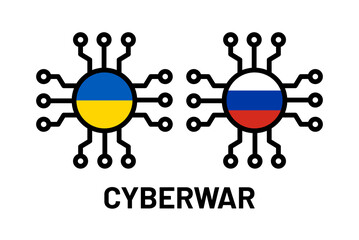
In light of recent nation-state attacks and geopolitical changes, Venafi has released new research evaluating the corresponding security risks.
The survey, which interviewed over 1100 security decision-makers (SDMs) from around the world, found that 65% of Australian organisations have tweaked their cybersecurity strategy in light of the Russia-Ukraine conflict. Additionally, nearly two-thirds of respondents (69%) think it’s likely their organisation has been targeted or affected by a nation-state cyberattack.
Other critical Australian findings from the study include:
- 79% believe that we are constantly in a state of cyber war.
- 87% believe that geopolitics and cybersecurity are two peas in a pod.
- 65% have had more conversations with their board and senior management In response to the Russia/Ukraine conflict
- 61% doubtful that anyone would know if a nation-state hacked their organisation.
- 60% think the threat of actual war is a bigger worry than cyberwar.
“Cyberattacks from nation-states are a reality for all businesses today. They may not look like what people thought they would. Still, security professionals know that they can harm any company,” states Kevin Bocek, vice president of security strategy and threat intelligence at Venafi.
“Geopolitics and kinetic warfare need to be considered in cybersecurity planning,” he adds.
“We have been aware for a considerable time that state-sponsored APT groups are utilising cybercrime to achieve their nations’ wider political and economic objectives. Unlike a kinetic warfare attack, only the potential victim can defend against nation-state cyberattacks. Every CEO and board should recognise cybersecurity as one of the top three business risks, regardless of industry.”
Venafi’s research indicates that nation-state threat actors increasingly use machine identities in state-sponsored cyberattacks. The foundation of all secure digital transactions is built on certificates and keys that serve as machine identifiers. Identities are employed to communicate securely in various scenarios, from physical devices to software.
According to the findings of Venafi’s study, Chinese APT groups are engaged in cyber espionage to enhance China’s international intelligence. In contrast, North Korean groups use cybercrime earnings to fund their weapons programs directly. The SolarWinds assault, in which hackers gained trusted access to critical assets by using machine identities to create backdoors, illustrates the scale and breadth of nation-state attacks that exploit compromised machine identities. The recent HermeticWiper attack in Russia, which breached many Ukraine-based companies shortly before the Russian invasion of the country, is an example of machine identity abuse where nation-state actors used code signing to authenticate malware.
The only way to avoid machine identity abuse is through a control plane that offers visibility, governance, and dependability.
According to Bocek, “nation-state attacks are highly sophisticated and use previously unseen techniques, which makes them hard to defend against if you don’t have the right protections in place beforehand.”
“Attackers often use machine identities in nation-state attacks, so every organisation needs to improve their security. Exploiting machine identities has become the modus operandi for nation-state attackers.”
Nation-state cyberattacks are a reality for all businesses today. While there is no one-size-fits-all solution to protecting against these attacks, organisations can take steps to improve their security posture and reduce their risk of being compromised. These steps include implementing a comprehensive machine identity management solution and awareness and training programs that educate employees on identifying and defending against these attacks.

More Stories
Killnet and AnonymousSudan Collaborate to Launch Cyber Attacks on Western Organisations
In recent news, it has been reported that two Russia-sympathetic hacktivist groups, Killnet and AnonymousSudan, have allegedly launched a series...
$4000 Gone In An Instant: Mother Defrauded in Facebook Marketplace Car Deal
A mother of four is warning others to be cautious after believing she had purchased a safe and dependable car...
Shocking Scam: Sydney Family Loses $200K Life-Savings in Suncorp Spoofing Fraud
A family from Sydney has lost their life savings worth $200,000 due to a fraudulent scam. Peter and Madison, who...
Mysterious Money Transfer Leaves Couple Speechless: How They Got an Unsolicited $4000
A young couple in Melbourne claims their bank is making up a personal loan they do not understand. Ashley and...
Phishing + AI + Voice Cloning= Big Trouble: The New Way Criminals are Stealing Your Money
New Alert: Criminals use AI and voice cloning to trick you out of your money. Earlier this year, Microsoft unveiled...
‘Impossible to Spot’ Delivery Scam Email Targets Australia Post Customers – Don’t Fall Victim!
Unsuspecting shoppers should be cautious as a parcel delivery scam that is hard to distinguish targets Australia Post customers. Email...


